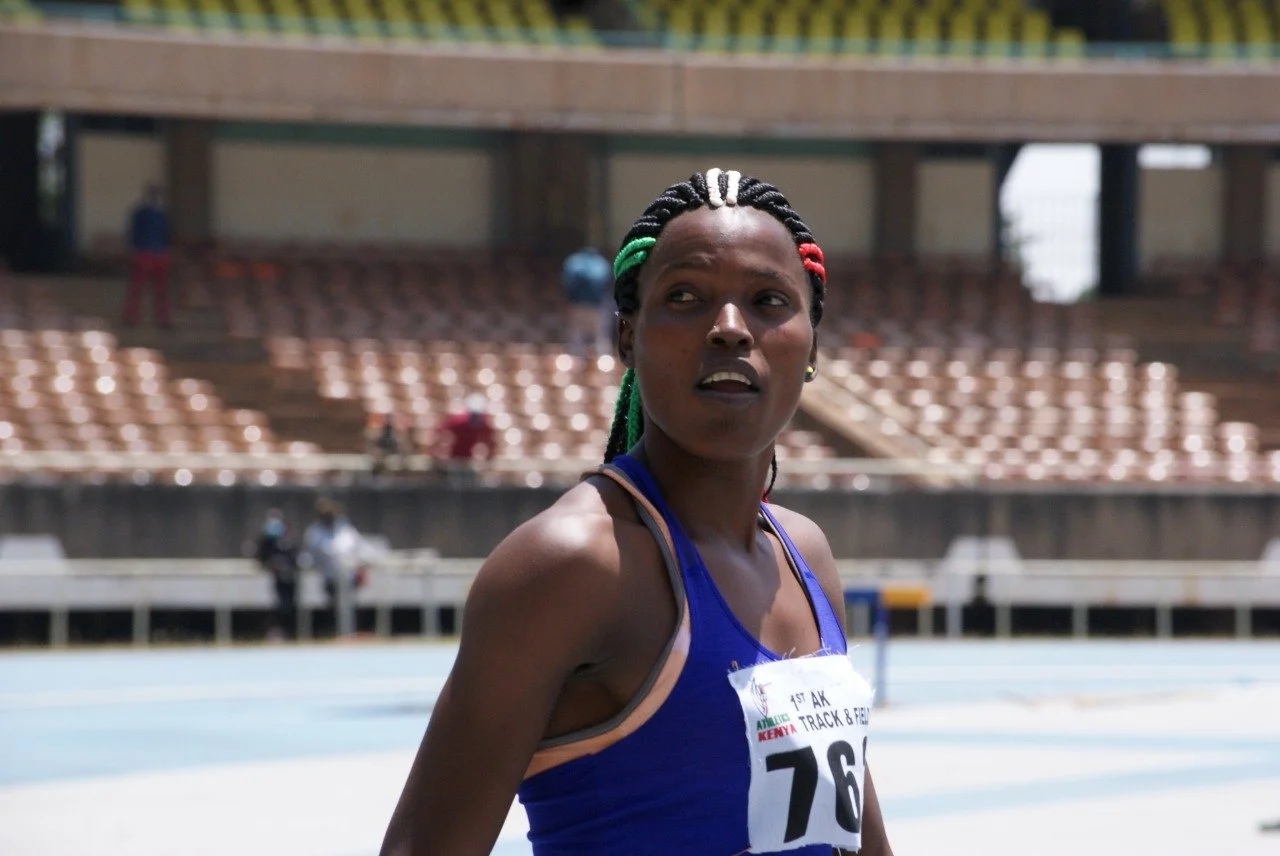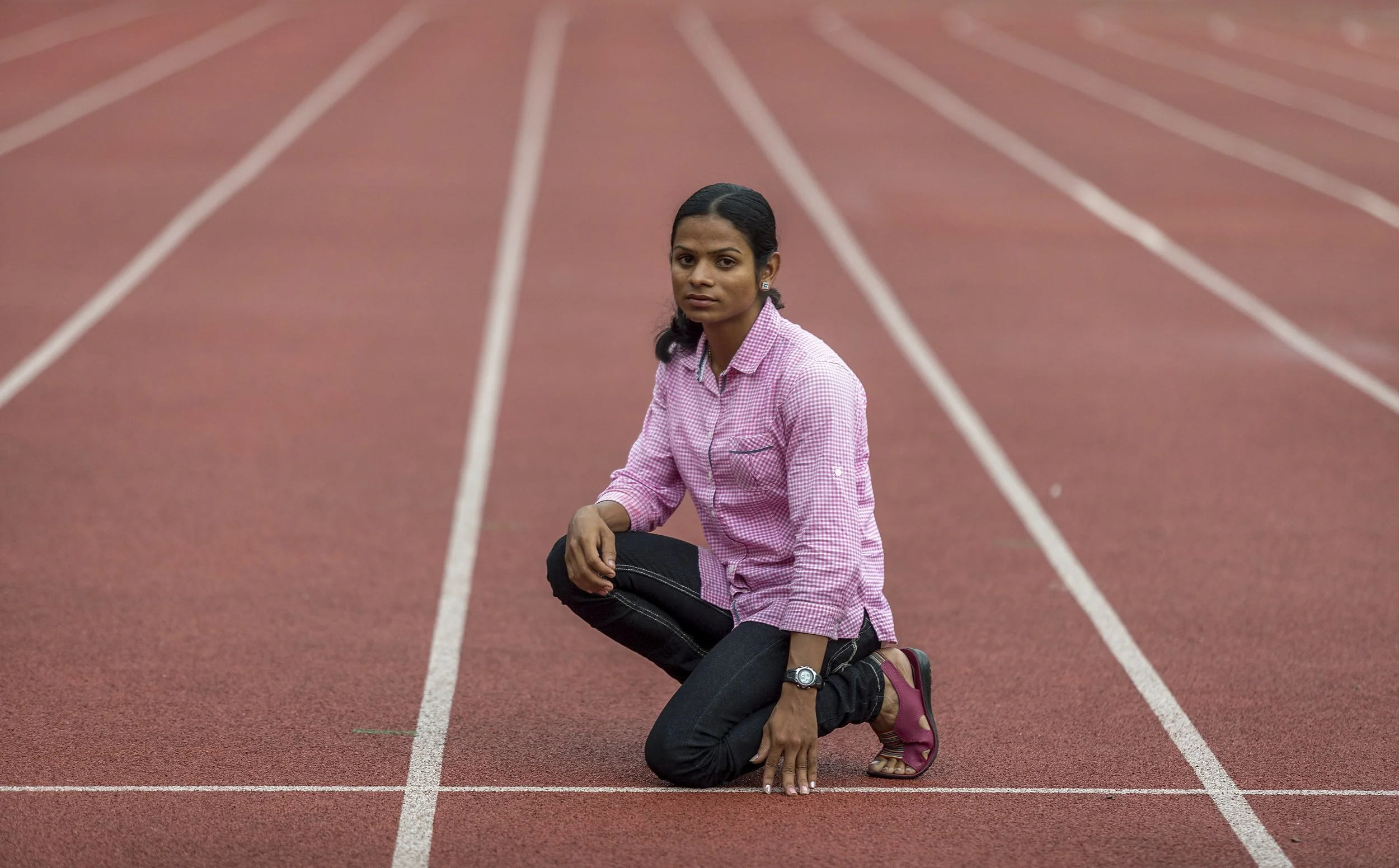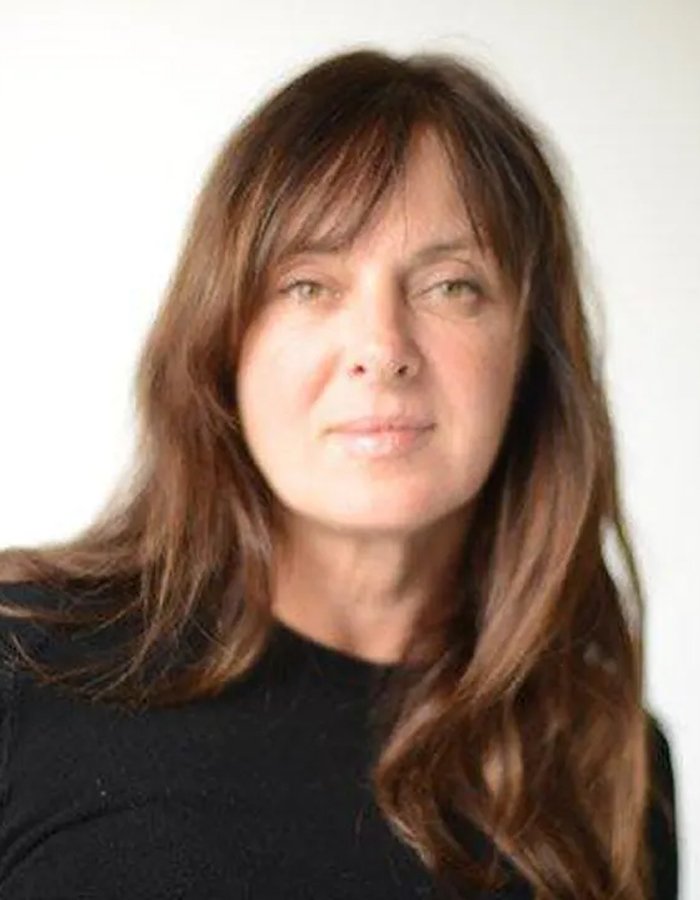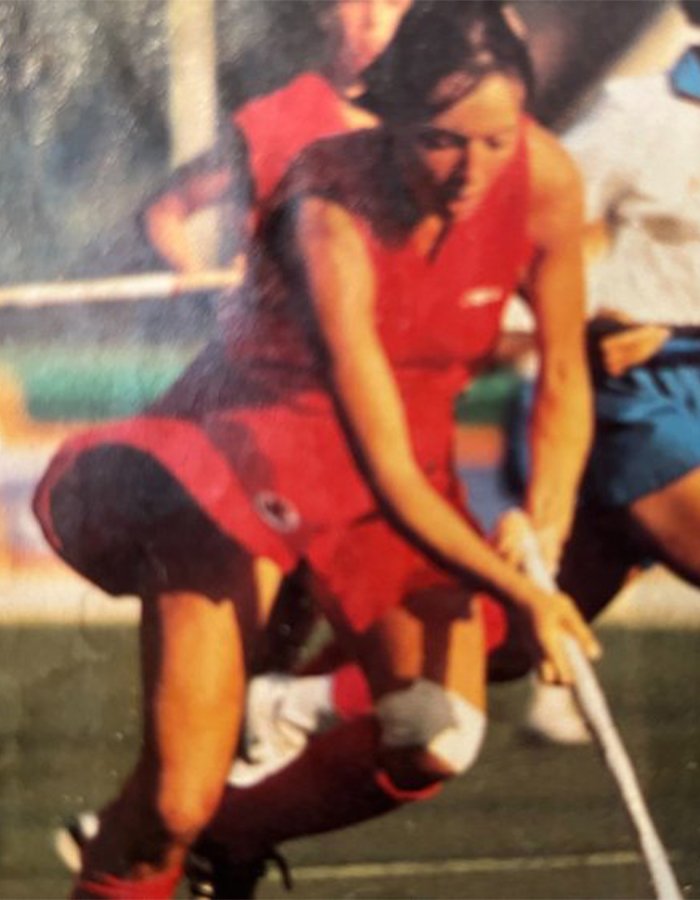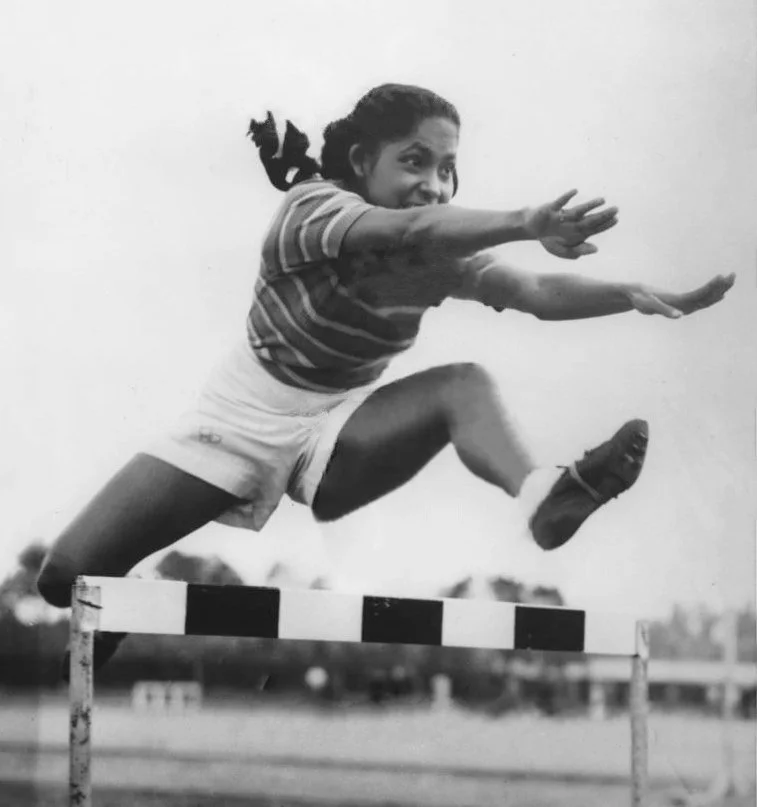Category: Woman
In the wake of the Paris Olympics and relentless misinformation, and racism surrounding champion women Imane Khelif and Lin Yu-ting, the policing of women's bodies, gender discrimination and the attack on our identities as female athletes in international sport remains an issue that has plagued women's sport for decades.
Category:Woman exposes the over 100 years of sex testing highlighting the contemporary stories of remarkable athletes whose lives and careers have been destroyed by harmful, clandestine regulations enforced by International Sport. The devastation to their bodies and lives, yet their passion to compete is emboldened by a conviction to fight for their human rights.
Category:Woman is a champion's journey supported by remarkable humans who celebrate greatness in the face of oppression.
Following her award-winning film Toxic Beauty, filmmaker and Olympian Phyllis Ellis exposes an industry controlled by men, putting women's lives at risk while this dystopian 'othering' of women athletes, remains in a more nefarious way, under the guise of fair play.
Director Phyllis Ellis
Writer Phyllis Ellis
Director of Photography: Iris Ng
Editor Eugene Weis
Composer Aaron Davis, tUkU
Producers Phyllis Ellis, Howard Fraiberg
Executive Producers Howard Fraiberg, Cheryl Staurulakis
Rent now on Vimeo!
A percentage of your rental goes directly to support humansofsport.com that equips athletes with the tools to secure their livelihoods, remedy injustices and empowering them to change their own lives and the realm of sport.
Director, Phyllis Ellis
“I was inspired and deeply affected by this story far beyond that of a filmmaker.
I had experienced many challenges as an Olympian, and as a woman in high performance sport, but I may have collapsed under the pressure these phenomenal athletes have endured.
The devastation to their bodies, and their lives, but equally arresting was their passion and joy for sport, the dedication to their communities, families and country.
How could this have happened?
All of their personal medical records leaked to the international media. The misinformation, public scrutiny, racism, sexism, the questioning of the most fundamental right of who they are and who they are told they should be.
This is a basic human right.
All of this to compete in their sport on the world stage, a coveted space where we are supposed to be protected.
We hoped to celebrate each woman while they tell us the truth of their experience. And to lens the film in a way that empowered and did not disembody the athlete from the human being.
We hope to provide an audience with enough context to understand, to feel what we felt, and not be overwhelmed in explanation. To be vigilant and stand beside the women in this film, and to step out of my lived experience as a filmmaker from the Global North.
To say that human dignity and human rights must be afforded to all athletes, to say clearly, this should never happen again”.
— Director, Phyllis Ellis
Our Subjects
-

Annet Negesa
Berlin, Germany
Even before the middle distance runner had a coach, Negesa was qualifying and winning major regional championships in Uganda. At 18, she won a bronze medal in the 800m at the Junior World Championships. In 2011, she was named Athlete of the Year by the Ugandan Federation and went on to qualify for the 2012 London Olympics. Weeks before the London Games, she was informed by the IAAF that she had high levels of naturally occurring testosterone and was offered serious, irreversible surgery that derailed her career and left with serious side effects. Negesa has not competed internationally since 2012. In 2020, she was granted refugee status in Germany. She continues to train with the hopes of one day, competing for Germany on the international stage.
-

Dutee Chand
Odisha, India
A two-time Olympian and 100m national record holder, sprinter Dutee Chand has been a trailblazer for Indian athletes ever since she burst onto the scene in 2013. She is the first openly gay athlete from India, created history in 2019 at the World Universiade in Naples when she became the first Indian athlete to clinch gold in a 100m event at a global meet. In 2014, she was forced out of competition due to the 2011 IAAF Hyperandrogenism regulations and was the first athlete to take her case to the Court of Arbitration of Sport. She won her case resulting in a two year hiatus for all women from around the globe to compete without prejudice.
-

Evangeline Makena
Ngong, Kenya
After tremendous success as a junior competitor, runner Evangeline Makena was just breaking onto the international scene when she qualified to represent Kenya at the 2019 World Relay Championships in the 400m. Prior to departure for the Championships, Athletics Kenya tested all their female athletes, in response to the IAAF DSD regulations. Eva’s results showed, at the time of the blood test, higher testosterone levels then was acceptable by the ruling. She was immediately dropped from the team, losing her funding and ability to compete. Instead of optioning to take medication that could inhibit her natural abilities, Makena has made the difficult decision to switch her event in the hopes of reclaiming her career in sport.
-

Margaret Wambui
Neyri, Kenya
In her first international competition, runner Margaret Wambui won gold at the 2014 World Junior Championships, and later a bronze medal at the 2016 World Indoor Championships. She qualified for the 2016 Rio Games and won an Olympic bronze in the 800 meters. She was a silver medalist at the 2017 Commonwealth Games. In 2019, Margaret was dropped from the Kenyan track team due to the World Athletics 2018 DSD regulations due to her naturally occurring high levels of testosterone. Margaret rejected the solution of medically altering her healthy body via medication or surgery and has not competed internationally since 2019.
-

Alison Carlson
San Francisco, CA
For decades, Alison Carlson has turned cutting-edge knowledge in health, environment, social enterprise, impact investing and athletics into results for the public good. Among other initiatives: She was a co-founding member in 1990 of the International Work Group on Sex/Gender Verification Policy in Sports to reform gender-based athlete eligibility requirements. She co-launched public radio’s first hour-long sports program, Only A Game; and the University of California’s Program on Reproductive Health and Environment. She is currently founder and chair of Forsythia Foundation. Alison graduated Phi Beta Kappa from Stanford with distinction in human biology.
-

Bruce Kidd
Toronto, Canada
Bruce Kidd has been a lifelong advocate of human rights and athletes’ rights. He was the Canadian director of the international campaign against apartheid sport, which marshalled the power of sport against the brutal racist dictatorship of apartheid South Africa. He co-chaired the national work group whose recommendations led to the creation of the Sport Dispute Resolution of Canada. He has long been an advocate for gender equity, sexual diversity, ethno-cultural diversity, and universal accessibility in sports. He was an advisor to the Indian sprinter Dutee Chand in her successful effort to overturn the 2011 sex test in international sport and supports Caster Semanya’s efforts to overturn the 2018 version of that test.
-

Greg Knott
Johannesburg, South Africa
Greg Knott is a leading attorney of the High Court of South Africa with three decades of legal experience. Whether pioneering human rights causes during the throes of Apartheid or spearheading multi-billion-dollar projects, he has a record of accomplishment of success and impact. He has an extensive network of domestic and international colleagues, legislators, judges, politicians, lawyers, business leaders, and figureheads. In 2010 Greg was awarded with the International Lawyer of the Year for his fearless defence of two-time world champion and Olympic champion Caster Semenya. He began his career in human rights representing political prisoners, exiles and trade unions. During the transition to democracy, Greg served in executive positions and/or as a member of a number of organisations, including National Return of Exiles Committee (1990's); Committee for Training of Magistrates (1990's); and the Chairman of the Consultative Business Committee (1990's). Greg solidified relationships with the soon to be leaders of democratic South Africa.
-

Jim Bunting
Toronto, Canada
Jim Bunting is a founding partner of Tyr LLP. Known for his bold approach as a trial lawyer, Jim represents clients on their most challenging issues. He believes deeply in giving back to the community. He was awarded the 2016 Lexpert Zenith Award for Diversity & Inclusion to recognize his pro bono work with global athletes. Bunting is representing South African born 800 metre Olympic champion Caster Semenya (and before her Dutee Chand) in appeals seeking to strike down regulations that require certain women to lower their naturally occurring testosterone levels as a condition of participation in women's sport.
-

Dr. Katrina Karkazis, PhD
Brooklyn, New York
Dr. Katrina Kazkazis is a cultural anthropologist working at the intersection of science and technology studies, theories of gender and race, social studies of medicine, and bioethics. Her research and teaching examine—and challenge—scientific and medical beliefs about gender, sexuality, and the body across a range of topics. She is a Professor of Sexuality, Women’s and Gender Studies at Amherst College and a Senior Research Fellow with the Global Health Justice Partnership at Yale University. Her latest book, Testosterone: An Unauthorized Biography, written with Rebecca Jordan-Young and published by Harvard University Press, unsettles a great deal of long-standing knowledge and beliefs about this hormone. Testosterone was awarded the Gold Medal in Science from the Independent Publisher Book Awards.
-

Dr. Myron Genel
New Haven, Connecticut
Myron Genel, professor emeritus and senior research scientist in pediatrics at the Yale University School of Medicine, joined the medical school faculty in September 1971 and was associate dean for government and community affairs for nineteen years until January 2004. Dr. Genel has served at the interface between biomedical research, clinical endocrinology and public policy in many capacities.
He was a member of the National Children’s Study Federal Advisory Committee from 2005-2008 and concluded a three year term on the Secretary’s Advisory Committee on Human Research Protections (SACHRP) in July 2009. Dr. Genel was part of an international, interdisciplinary team which succeeded in eliminating gender verification in international athletic competition, including the Olympic Games. More recently he served as a consultant to the IOC’s Medical Commission on issues relating to participation of transsexual athletes and athletes with disorders of sexual development.
-

Dr. Payoshni Mitra
London/Lausanne
Dr Payoshni Mitra is a former badminton player and coach turned gender and sport scholar, a prominent athlete rights advocate, and a leading campaigner in the abolition of sex testing policies in women’s sport. She has more than a decade-long experience of working closely with women athletes across Asia and Africa to enable them to address human rights violations in sports. Her advocacy work on inclusion and non-discrimination in sport has influenced important social, institutional, and structural changes on an international scale. She is a Director and Trustee at the Geneva-based Center for Sport & Human Rights and was appointed as the first-ever CEO of the newly established Global Observatory for Women, Sport, Physical Education and Physical Activity in January 2022.
-

Roger Pielke Jr
Boulder, Colorado
Roger Pielke, Jr. has been on the faculty of the University of Colorado Boulder since 2001, where he teaches and writes on a diverse range of policy and governance issues related to science, technology, environment, innovation and sports. He is a professor in the Environmental Studies Program. In 2012 Pielke was awarded an honorary doctorate from Linköping University in Sweden and was also awarded the Public Service Award of the Geological Society of America. In 2006, he received the Eduard Brückner Prize in Munich, Germany in 2006 for outstanding achievement in interdisciplinary climate research.
-

Zine Magubane
Boston, USA
Zine Magubane is a scholar whose work focuses broadly on the intersections of gender, sexuality, race, and post-colonial studies in the United States and Southern Africa. She has held professorial positions at various academic institutions in the United States and South Africa and has published several articles and books. Currently, she is an Associate Professor of Sociology at Boston College. Magubane is the author of Bringing the Empire Home: Race, Class, and Gender in Britain and Colonial South Africa, which explores colonial conceptions of blackness across England and South Africa and how these representations continue to influence ideas of race, gender, and class today.




